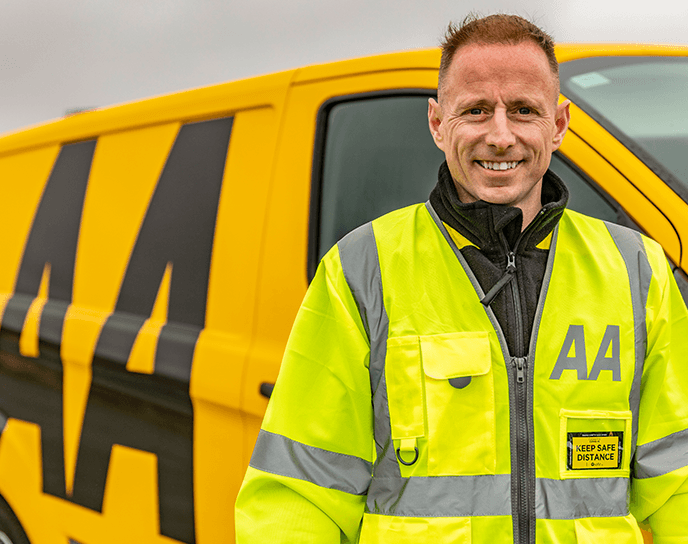It’s finally time for you to take your first steps on the property ladder. Reaching this milestone in life involves time, energy, money, and plenty of paperwork. Stay organised and secure your dream home by following our step-by-step guide to buying a home as a first-time buyer in Ireland. We cover everything from:
- Setting your budget
- Mortgage applications
- Getting the keys to your new home.
How to set your Budget for buying a house
The first step to buying your home is starting to save your deposit. As a first-time buyer, you will usually face a 90% limit on the mortgage you can get. So, the deposit you will have to pay will be a minimum of 10% of the overall cost of your new home. Use this to estimate how much you need to save.
Saving for a deposit can take time, we share some helpful tips in our guide on The dos and don’ts of saving for a mortgage.
Calculate your mortgage payments
Budgeting for your new home doesn’t stop at sorting out your deposit. You must consider how much you can spend on your mortgage each month.
Don’t overlook the extra costs you will face, this includes:
- Mortgage protection
- Home insurance
- Repairs
- Stamp duty
- Moving costs
- Any renovations your new home might need.
- Running costs of your new home each month.
Calculating all of this will give you an accurate understanding of how much you can afford to pay on a mortgage each month.
To help you with this you can use this handy budget planner calculator from The Competition and Consumers Protection Commissions (CCPC).
The Help to Buy Scheme for first-time buyers
The Help to Buy scheme (HTB) is in place to help first-time buyers put a deposit together, by claiming back tax they have paid in Ireland in the last four years.
We have a step by step guide to the HTB scheme that covers everything you need to know.
How to apply for a Mortgage as a first-time buyer
You can directly apply for a mortgage with your chosen provider or through a mortgage broker. The key area you need to look at is the interest rate. You need to evaluate this with the overall cost of your mortgage and how many years you will be paying it. All of this together will give you the best estimate on what your mortgage is going to cost.
We recommend you apply for your mortgage before looking at properties, that way you can put in an offer without causing extra delays.
How many mortgage providers should you apply to?
You can apply to more than one mortgage provider, that way you have a choice of more than one mortgage rate to choose from. Compare their rates to find the best option for you.
Don’t forget about mortgage protection
Lenders can refuse your application if you have not organised your insurance. You are required to have mortgage protection in place to pay off your mortgage should you die it is paid off. To avoid any delays start looking for mortgage protection before you have made any offers.
We have a helpful guide explaining everything you need to know about mortgage protection and life insurance.
Finding a solicitor for buying a house
Organise you’re a solicitor before you start looking for your property, this will make the whole process much smoother. Any offers you put in will involve your solicitor. They will organise the conveyancing of your new home, transferring the ownership of the property from the seller to you. They also ensure that the sale of the home is completely legal.
Start looking for your first home
Start looking around your preferred areas, keeping notes on the important aspects of each home, this could include:
- Aspect
- The number of bedrooms
- Its distance to work or schools
- BER ratings
- The size of the garden
- The number of bathrooms
Keep a note of anything that’s important to you and don’t leave any viewings unsure about things. You will need a clear picture of each home and what’s important to you before making any offers.
How to make an offer on a house
Before you put an offer in do some research on the recent property prices in the area you intend to buy. This will help you understand what might be expected from your offer. An offer is the maximum price you are happy to pay for the property. You need to consider the condition of the house and account for the cost of any repairs.
What documents do you need to make an offer on a house?
- A letter of mortgage approval from your lender.
- A bank statement to show you can pay for the deposit.
What happens after the sale is agreed on a house
Once the sale has been agreed you will be required to pay a booking deposit. This is usually a small percentage of the offer you have made on your home or a specific amount. This will be refundable up until you sign the contracts for your new home.
Your estate agent will prepare all the necessary documents and send them to your solicitor.
The final steps to buying your new home
- Always have the site and property checked by a surveyor, engineer, or architect. Your first home is an investment, any damages or issues found in the home can affect your offer.
- Get an evaluation on your new home, this must be completed before your bank will release your mortgage funds. It is just as important to have a professional carrying out your evaluation, as this is what your formal loan will be based on.
- You will need to have home insurance in place so that the new home is covered before the sale is closed.
- If you’re buying a newly built home, you should arrange a professional to complete your snag list, this will list anything that is incomplete or errors you need fixed before moving in.
Signing the contract of your new home
Once you have mortgage approval you will receive a letter of offer explaining all the details of the mortgage you are being offered. Organise a meeting with your solicitor as soon as possible as they will have received all the legal paperwork required.
Once you have signed the contract of sale with your solicitor you have legally agreed to buy the property. You will then pay the deposit to your solicitor who will transfer the payment to the seller’s solicitor.
Getting the keys to your first home
At this point, all your paperwork must be submitted to your mortgage provider. The mortgage cheque will then be sent to your solicitor who will arrange it to be sent to the seller’s solicitor.
Both solicitors involved will then organise the closing date. This is usually when keys are ready to be collected. Now it’s finally time to move in.
If you’re in the market for home insurance, get your quote with AA Home Insurance today.
We have some great guides for first-time buyers covering everything you need to keep your new home safe and secure.










